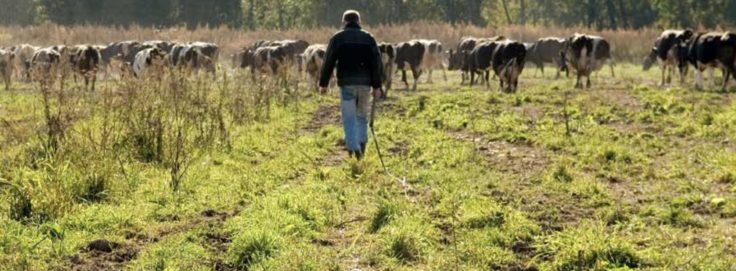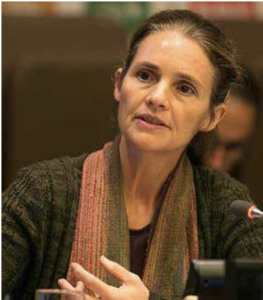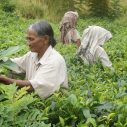
Search
Sabina Alkire: “We need to use this tragic period well”

In this interview, Sabina Alkire, OPHI Director, talks about the COVID-19 pandemic and the ways that countries could prevent and mitigate its impact on people living in multidimensional poverty – and in the end, make permanent change.
What could be the possible impact of the COVID-19 pandemic on the lives of people in multidimensional poverty?
People living in multidimensional poverty have already several problems going on at the same time. Different people might have a different combination of deprivations, related to health, employment, education or different aspects of their housing conditions, their social protection programmes, or their environment or violence. But they are carrying a deprivation load – it’s as if their arms are full of different boxes. It’s not just one, but there are several different boxes they have to carry all the time. Then COVID-19 comes along. It’s an extra burden, an extra weight, and so it’s a different impact on them than on the non-poor.
COVID-19 potentially impacts everybody, but if it’s the only threat that you have, then you’re able to take measures – of social distancing, staying at home, or modifying your habits. But what if you also have a number of other pressing deprivations and your deprivation load is already heavy? Then, when you add COVID-19, things become potentially very dangerous. COVID-19 could be a critical threat to people’s core well-being. There are many different ways the COVID-19 pandemic will affect poor people in addition to the direct health impact, which is dangerous enough already.
Why in particular are the people living in poverty most affected by the pandemic?
On the one hand, the impact of COVID-19 is greatest among those who have core morbidities – underlying health conditions such as diabetes, asthma, or a cardiac disease. They’re in more risk, and the poor already may lack treatment. Preventing COVID-19 is also harder for people who live in intergenerational households, people who live in overcrowded conditions in urban areas, where it’s impossible to social distance because the house is too small or they are not able to wash their hands regularly.
A further concern, perhaps especially for the urban poor, is the loss of livelihoods for people who are already in the informal labor market, or who have an unsafe job without any benefits. If they lose their livelihood and don’t have food stocks or savings, they will be deeply affected. There are also places where there are shocks to the system at the same time, in the form of drought, locusts, or conflict on top of the COVID-19. Those places would be affected.
The other group of countries that will be very affected will be those who are not able to test and then to isolate people with COVID-19, so it doesn’t become diagnosed and spreads progressively.
What are the long-term effects of the pandemic that concern you the most?
The pandemic we believe is inaugurating a recession, an economic downturn, which will be deep and lasting, perhaps deeper and more lasting than in 2008.
The poor will be most affected initially and the concern is that if there are not proactive responses, then inequality could deepen.
The numbers of people in poverty could go back to five or ten years ago, and a lot of the hard-won gains, that many have worked a great deal for, whether it’s in Africa, South Asia or different parts of the world, could be undone.
It’s not a given that it will happen, but in the absence of a proactive response, it seems likely that inequality will go up, poverty will go up, social divisions will go up and conflicts across groups may also arise.
We hope that will not happen, but without proactive interventions, it could occur.
In terms of interventions, what can countries do to mitigate the pandemic’s impact?
All of us are still learning a lot. It seems that Governments that acted quickly, that tested people, traced and isolated, seem to have been the most successful in stopping the pandemic.
They also rightly need to offer stimulus to the economy, so offering support, not only to salaried workers, but also to the informal workers and people who’ve lost their livelihoods, the self-employed and vulnerable. This will reduce the impact.
There is also the need continuously to monitor and update the situation of the poor and the ‘new’ poor.
The rapid socio-economic surveys are a start, but may not obtain key indicators of the ‘new’ poor – I am hoping to see a burst of innovation so that committed governments obtain the information on overlapping deprivations they need to support the poor.
The numbers of people in poverty could go back to five or ten years ago, and a lot of the hard-won gains (…) could be undone.
What should be governments’ priorities and what type of policies should be important to implement for the poor population during the recovery process?
In terms of priorities, the first one is just what has been done, which is supporting the income stream of the poor or providing donations. Another short term urgent need is to control food prices because there’s going to be a tendency for inflation. If that occurs, the benefits of cash transfers could be wiped away. So, controlling inflation is another priority that is very important.
There will be a need for sectors of the population to reskill. From tourism, for example, into the agricultural sector, into services, going into creative arts or other livelihoods.
The deeper need is to figure out where the next growth points will be in the economy. How do we stimulate new meaningful, decent jobs that navigate the changes from artificial intelligence, and are created understanding the whole landscape of how the global labour market is changing, and the ongoing uncertainty from COVID-19.
On the other hand, governments must strengthen the health systems, their own communication, the record keeping and statistical systems, the hospitals and the public health workers. The messaging to prevent misunderstandings about COVID-19 is vital.
But the most important priority of all is actually to use this tragic period to reduce poverty – to introduce permanent change. It is a difficult time. Poverty seems to be increasing and even the middle and upper classes have an economic hit. Yet if the governments, together with citizens’ groups and businesses, use their resources well and have a clear mandate from the population, and if there is political leadership to use this period to reduce poverty, then we could turn a corner.
Some of the worst kinds of destitution and human pain that we now see, abject poverty, really could be pushed back not temporarily, but permanently. That would be our best case scenario.
OPHI has made a call for action, what responses have you received and what project or activities focused on the pandemic impact are in progress?
We’re inspired by the words of Amartya Sen who observed that in Britain during the Second World War, there was a food availability decline, but during this time of food shortages, the governments issued policies of rationing during the decade before the War, male-life expectancy had increased by 1.2 years, but during the decade of the War, male-life expectancy increased by 6.5 years and female by 7. That is to say that during the time of rationing, with less food but better distribution, people’s health outcomes improved.
Our call for action is really motivated by that historical example. But Sen also pointed out other contexts where policies failed to seize the moment. Today’s situation is likewise very difficult: could we do something similar? Governments that are using MPI’s, many who are MPPN members, are very much profiling and using the existing work that they have done on MPI in their COVID-19 response.
They are targeting people who are beneficiaries because they are MPI poor already. They are analysing existing registry data to identify new households that are likely to be vulnerable, because they are likely to have lost their livelihoods. They are investing in support – paying water and electricity bills – that will ease the impact of COVID-19 on the poor.
And they are keeping an eye out for the ‘new’ poor. On the last, OPHI are working with some governments to develop a Multidimensional Vulnerability Index (MVI), which identifies which people are likely to be pushed into poverty from COVID-19. We can do this with measurement, or with microsimulations where you simulate the impact that increases in unemployment, food insecurity, and so on will have on poverty, not only nationally, but by different regions, or for children or different groups of population. Multidimensional Vulnerability Indices don’t give you the names and the addresses of the people involved, but they give policy makers a sense of where they should inject fresh effort and resources in order to make sure that these simulated scenarios do not come to pass.
To reduce poverty when resources are tight requires data. Many of the household surveys that normally provide poverty data are not any longer in the field. There really is the need for remote surveys and remote data to complement most of our record data or satellite and big data and to really try to understand the configurations of deprivations that people are facing and prioritise the government’s response.
The private sector and citizens can also come in here. It’s a very complicated time for governments, so the better we can provide really efficient and accurate information on poverty, the more they can reduce poverty with very limited fiscal resources. So a further aim of this community of people who are working on poverty, should be to create a step-change in the collection, dissemination, and use of data on multidimensional poverty. Using multidimensional poverty measures means using information-dense, precise information on poor people’s deprivation loads. This contributes to efficient diagnosis and enables all actors to understand where limited resources will have the biggest impact in terms of people’s capabilities.
This article was published in Dimensions 10.

















